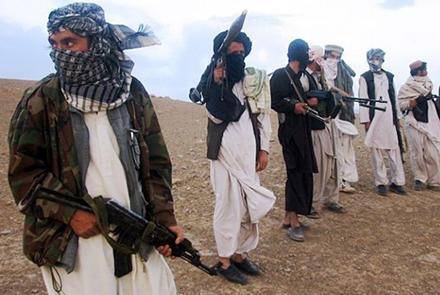
US authorities call on Taliban to end violence as they make gains across Afghanistan
The United States and Western allies called on the Taliban to immediately end the violence in Afghanistan and show their commitment to the peace process on Eid al-Adha, the holy Islamic holiday that begins on Monday.
The joint statement from the U.S. and 13 other allies follows a week of heavy military advances from the Taliban across Afghanistan, as they capitalize on the last stages of the withdrawal of U.S. and other foreign forces from the country.
The militant group claimed recently that their fighters had retaken 85 percent of the country—a figure disputed by the government. Other estimates say it’s now believed to control roughly half of the country’s 400 districts, including several vital border crossings, and that it’s attacking a string of important provincial capitals.
On Monday, the Sugh-e-Bill (Qashqar) oil fields belonging to the Amu oil field in Sar-e-Pul province fell to the Taliban, according to Sada, a television network in Afghanistan.
Amid the continuing violence, the joint statement from the allies, including Australia, Britain, Canada and the European Union, on Monday said: “The Taliban’s offensive is in direct contradiction to their claim to support a negotiated settlement of the conflict and to the Doha peace process. It has resulted in the loss of innocent Afghan lives, including through continued targeted killings, displacement of the civilian population, looting and burning of buildings, destruction of vital infrastructure, and damage to communication networks.”
The statement added that the detention and killing of civilians demonstrates “an extremely concerning” disregard for the rule of law.
“In districts occupied by the Taliban, inhabitants and observers also credibly report attempts to repress the human rights of women and girls and to shut down private and public media organizations in an attempt to conceal their human rights abuses and diminish freedom of expression,” the statement added.
“On behalf of our respective missions, we vehemently condemn these and any other actions that violate the rights of Afghan citizens. Afghans have made numerous gains over the past twenty years and want to continue building on their achievements in development, humans rights and free speech. We want to underscore that progress made over the past years can only be sustained if all parties work together.
“We join the United Nations Assistance Mission in Afghanistan in calling on the Taliban and all parties to immediately end the violence, agree to a permanent and comprehensive ceasefire, and engage fully in peace negotiations to end the suffering of the Afghan people and pave the way to an inclusive political settlement that benefits all Afghans and ensures that Afghanistan does not again serve as a safe haven for terrorists.
“This Eid al-Adha, the Taliban should lay down their weapons for good and show the world their commitment to the peace process.”
On Sunday, the Taliban’s supreme leader, Haibatullah Akhunzada, said he “strenuously favors” a political settlement to the conflict, as representatives from the Afghan government and the Taliban sat down for new peace talks in Doha, Qatar, over the weekend. Despite the peace talks restarting, the fighting continued through the weekend.
Reports on July 15 indicated that the Taliban and Afghan government officials agreed to a cease-fire in return for the release of 7,000 prisoners, but the militant group has since denied the reports.
Suhail Shaheen, a Taliban spokesman, told the BBC that the militants had proposed a reduction in violence some months ago, but that there was “nothing new on the table.”
The U.S. plans to withdraw all of its forces from Afghanistan by August 31, ending Washington’s involvement in the war after nearly 20 years, following the terror attacks of September 11, 2001. Biden’s move to finalize the withdrawal has been criticized by some GOP lawmakers who say it will destabilize the region. But the White House has reiterated the necessity of ending the longest war in U.S. history.
Source: Newsweek





